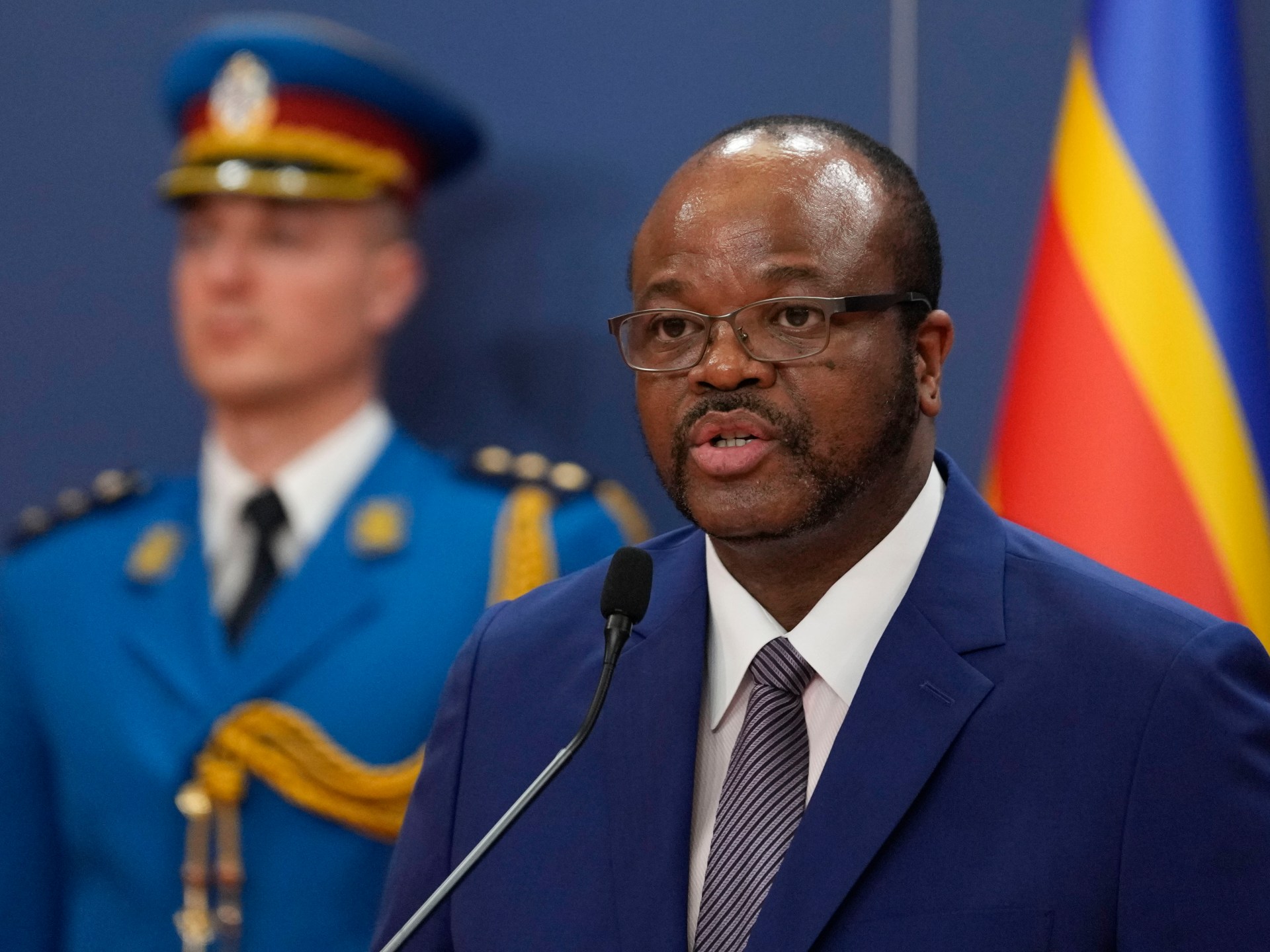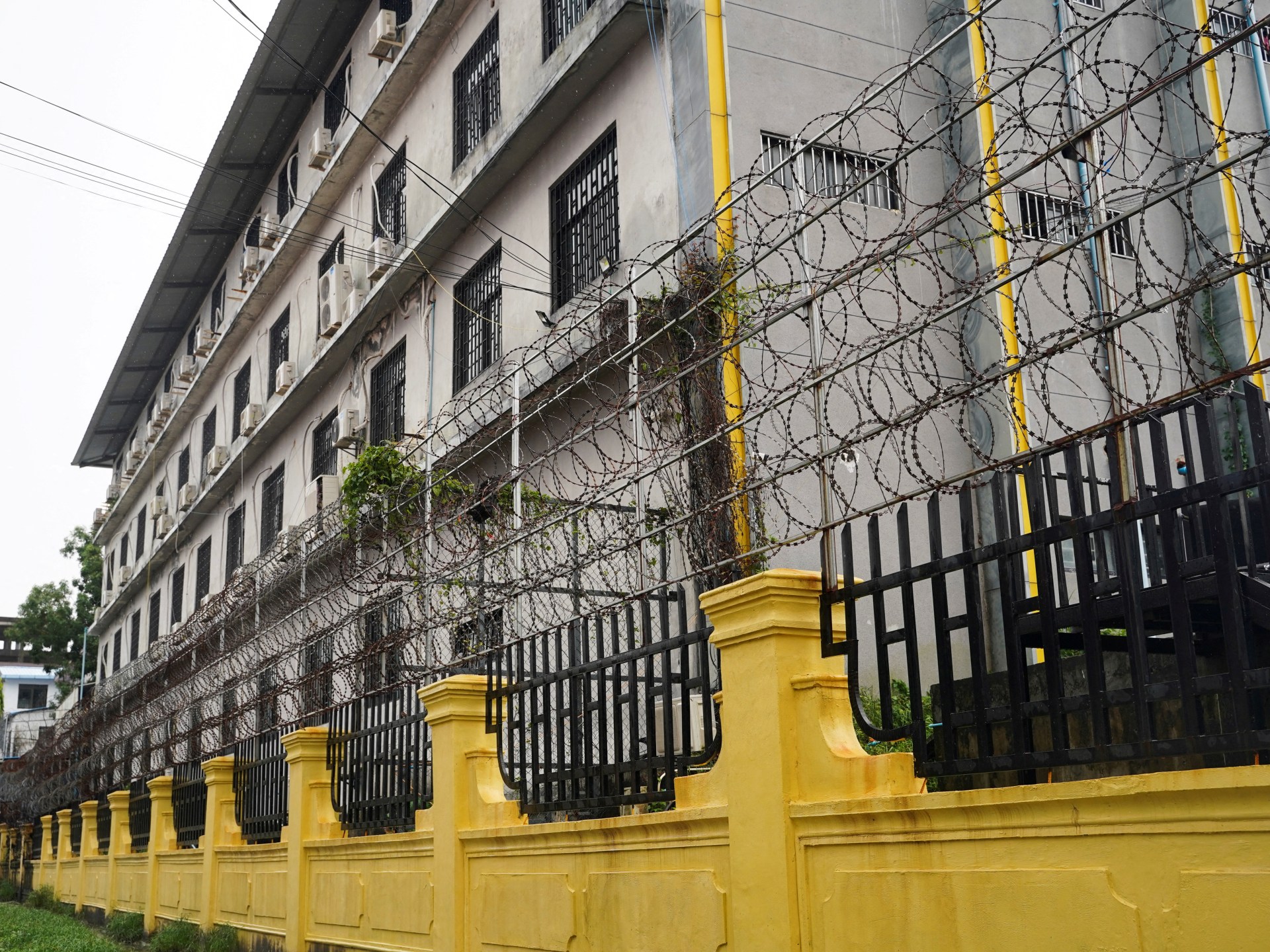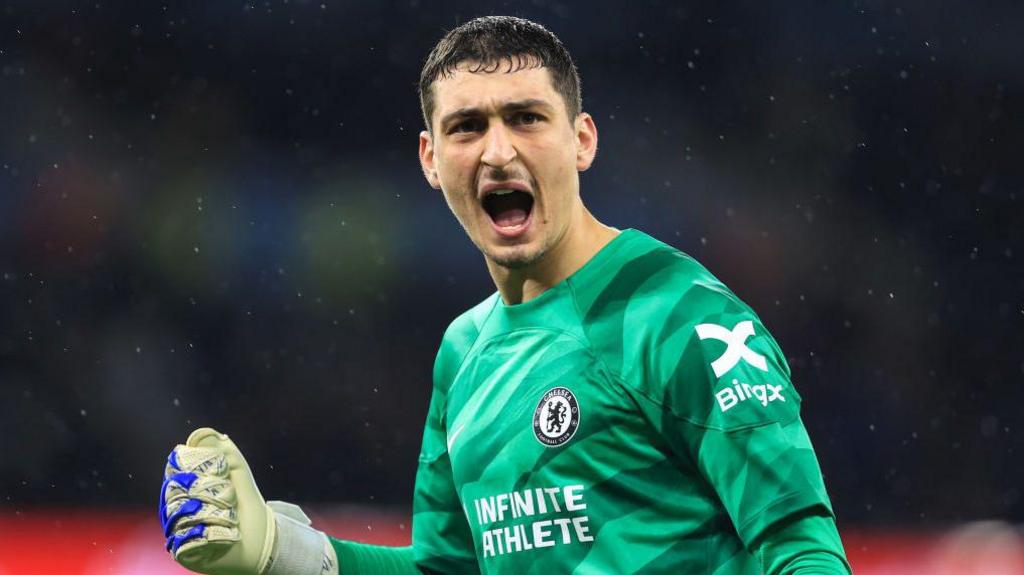The government of the tiny, landlocked African country of Eswatini has confirmed that it received five individuals deported from the United States under President Donald Trump.
In a statement on Wednesday, a spokesperson for the Eswatini government said the deportations were “the result of months of robust high-level engagements”.
“The five prisoners are in the country and are housed in Correctional facilities within isolated units, ‘where similar offenders are kept’,” spokesperson Thabile Mdluli wrote.
But she appeared to concede there were human rights concerns about accepting deported individuals whose countries of origin were not Eswatini.
“As a responsible member of the global community, the Kingdom of Eswatini adheres to international agreements and diplomatic protocols regarding the repatriation of individuals, ensuring that due process and respect for human rights is followed,” Mdluli said.
Her statement also indicated that Eswatini would work with the International Organization for Migration (IOM) “to facilitate the transit of the inmates to their countries of origin”.
The deportations are part of a wider trend under the Trump administration of deporting foreign nationals to countries outside of their own.
The White House has argued that these third-country deportations are necessary for individuals whose home countries will not accept them. But critics have maintained that the Trump administration is relying on countries with documented histories of human rights abuses to accept deportees, thereby subjecting them to the risk of inhumane treatment.
There is also concern that deportations under Trump are happening so swiftly that those facing deportation are unable to challenge their removal in court, violating their rights to due process.
On Tuesday, a spokesperson from the US Department of Homeland Security, Tricia McLaughlin, revealed the recent deportations to Eswatini, identifying the affected individuals as citizens of Laos, Vietnam, Jamaica, Cuba and Yemen.
“A safe third country deportation flight to Eswatini in Southern Africa has landed,” McLaughlin wrote on social media. “This flight took individuals so uniquely barbaric that their home countries refused to take them back.”
She asserted that the deportees had been convicted of crimes like murder, child rape and assault, calling them “depraved monsters” who had “been terrorizing American communities”.
The Trump administration has likened immigration into the US to an “invasion”, and Trump himself has repeatedly tied undocumented people to criminality, though studies indicate they commit fewer crimes than US-born citizens.
Since taking office for a second term in January, Trump has embarked on a campaign of mass deportation. As part of that push, his government has deported alleged criminals to third-party countries like El Salvador and South Sudan.
In March, for instance, the Trump administration deported an estimated 200 Venezuelans to El Salvador, where their heads were shaved and they were incarcerated in the country’s Terrorism Confinement Centre (CECOT), a maximum-security prison where conditions have been likened to torture.
The Trump administration reportedly paid nearly $6m for El Salvador to imprison the men.
Then, in May, reports emerged that the Trump administration planned to deport immigrants to Libya.
A federal court quickly blocked the deportation, and government officials in Libya denied the reports. But lawyers for the immigrants involved told US media that a flight nearly took off and was instead stalled on an airport tarmac as a result of the court order.
Later that same month, a flight did leave the US with eight deportees destined for South Sudan, a country that the US State Department itself concedes has “significant human rights issues”.
Those concerns include credible reports of extrajudicial killings, torture and “life-threatening prison conditions”. The State Department discourages travel to the country.
The flight to South Sudan was ultimately diverted to Djibouti after a federal court in Massachusetts determined that the eight men on board were not given an adequate opportunity to contest their deportations. The men were from countries including Laos, Mexico, Myanmar, Cuba and Vietnam.
But on June 23, the US Supreme Court issued a brief, unsigned order lifting the lower court’s ruling and allowing the deportation to South Sudan to proceed.
The Supreme Court’s three left-leaning justices, however, issued a blistering, 19-page dissent, calling the majority’s decision a “gross” abuse of the court’s power and denouncing the president’s actions as overreach.
“The Government has made clear in word and deed that it feels itself unconstrained by law, free to deport anyone anywhere without notice or an opportunity to be heard,” Justice Sonia Sotomayor wrote.
“There is no evidence in this case that the Government ever did determine that the countries it designated (Libya, El Salvador, and South Sudan) ‘w[ould] not torture’ the plaintiffs.”
Critics have voiced similar concerns for the immigrants sent to Eswatini, a country of 1.23 million people located northeast of South Africa.
Eswatini is considered an absolute monarchy, and its leader, King Mswati III, has been accused of stamping out dissent through violence.
In 2021, for instance, security forces allegedly killed dozens of protesters involved in pro-democracy demonstrations. In the aftermath, several politicians were sentenced to decades in prison for inciting violence, a charge critics say was trumped up to silence opposition voices.
Still, on Wednesday, the government of Eswatini defended its commitment to human rights in its statement to the public.
It also said that the decision to accept the five deportees from the US was made for the benefit of both countries.
“The Kingdom of Eswatini and the United States of America have enjoyed fruitful bilateral relations spanning over five decades,” the statement said.
“As such, every agreement entered into is done with meticulous care and consideration, putting the interests of both nations at the forefront.”
A memo obtained by The Washington Post earlier this week signalled that Trump administration officials may knowingly be deporting individuals to countries where their human rights are not guaranteed.
That memo, dated July 9, acknowledged that Immigration and Customs Enforcement (ICE) may remove non-citizens to third-party countries even when officials have not received credible diplomatic assurances against the use of torture or persecution, so long as certain other conditions were met.





